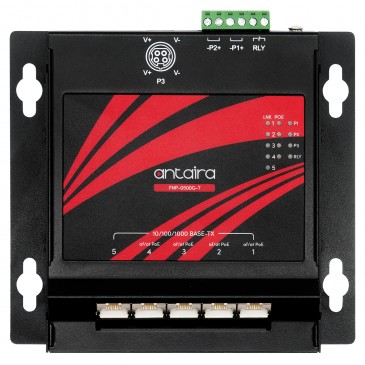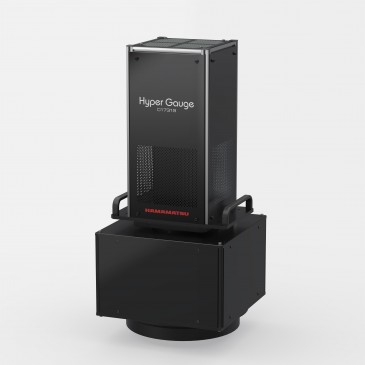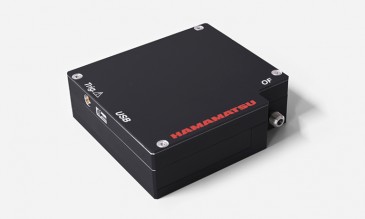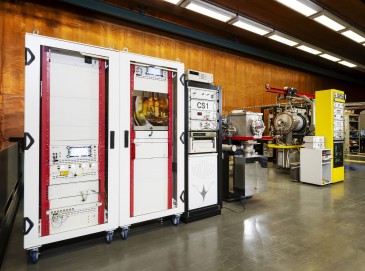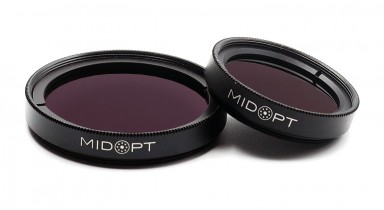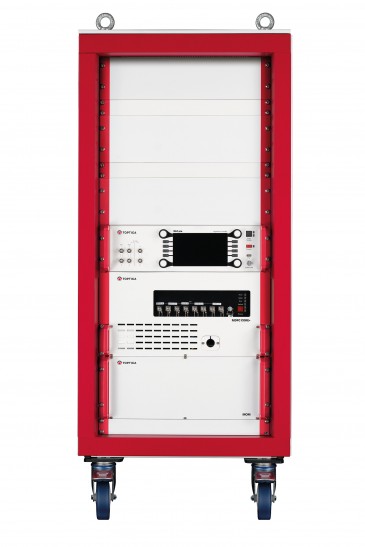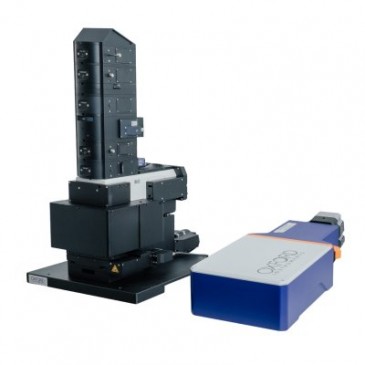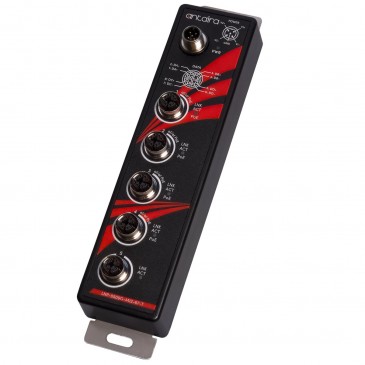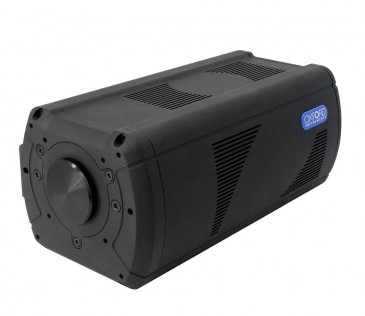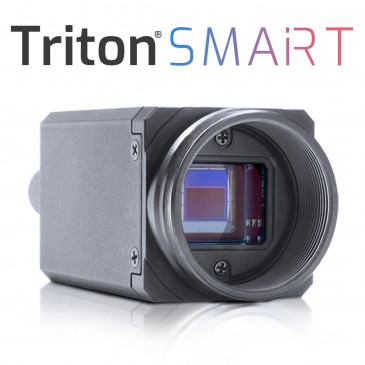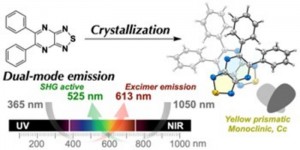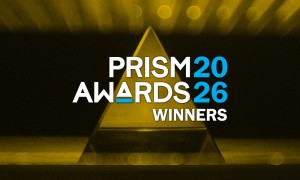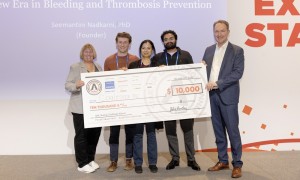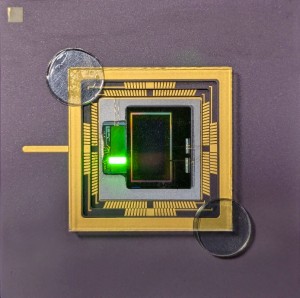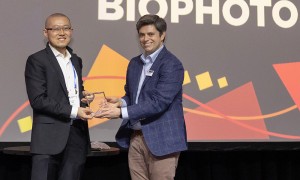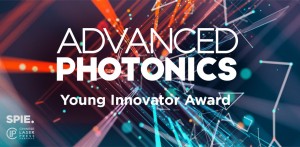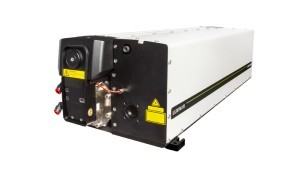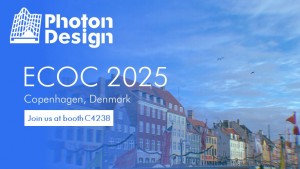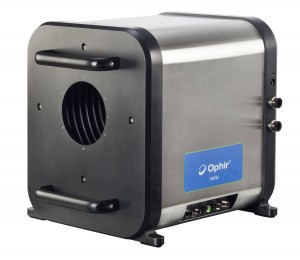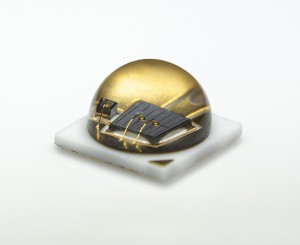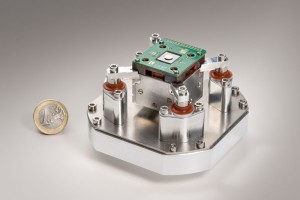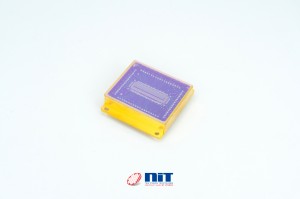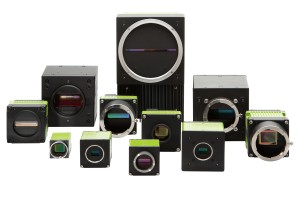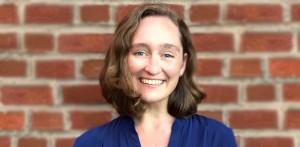
SPIE and Optica are pleased to announce the selection of Claire Cody as the 2023-2024 Arthur H. Guenther Congressional Fellow. She will serve a one-year term in Washington, DC, as a special legislative assistant for a member of the US Congress or as a staff member for a congressional committee beginning in September. SPIE and Optica are co-sponsors of the fellowship.
Cody will graduate with her PhD from the Chemistry Department at Yale University this summer. Her research focuses on electrocatalytic chemical conversion of small molecules such as water and ammonia, with the ultimate goal of using solar electricity generated from photovoltaics to generate carbon-free fuels and chemical feedstocks.
Outside of research, Cody is passionate about science policy, communication, and advocacy. She has served in leadership roles for Women and Gender Minorities in Science at Yale, building networking and mentoring opportunities for women and non-binary scientists across all levels at the university, and for Yale Student Science Diplomats, the graduate student group focused on scientific advocacy and policy. She created and wrote Energy Basics, a website that provides an overview of the scientific basics for energy transformations designed for non-scientists to learn about energy systems. Recently, she has been involved with the non-profit, non-partisan organization Connecticut League of Conservation Voters, where she has helped to write briefing papers and testimony on important environmental issues facing policymakers in the state legislative session. She is excited to gain experience in the federal legislative process, and to bring her scientific background to policymaking.
“It is such an honor to have been selected as this year’s Arthur H. Guenther Congressional Fellow,” said Cody. “I can’t wait to connect my scientific background to energy, environmental, and climate policy issues facing Congress, and gain hands-on experience with the legislative process at the federal level.”
As part of her fellowship, Cody will attend a comprehensive science policy and communication training and orientation session facilitated by the American Association of the Advancement for Science. Upon training completion, she will interview with Senate, House of Representatives, and congressional committee staff on Capitol Hill and then select which congressional office or committee she wishes to serve for her fellowship year.
The Congressional Fellowship's program mission is to bring technical and scientific backgrounds and perspectives to the decision-making process in Congress and provide scientists with insight into the inner workings of the federal government. Fellows have the opportunity to participate in a multitude of policymaking functions including conducting legislative or oversight work, assisting in congressional hearings and debates, preparing policy briefs, and writing speeches.
Each year, following a formal application process, finalists are interviewed, and Congressional Fellows are selected by a committee comprised of volunteer members from Optica and SPIE. Complete information on the selection process and fellowship criteria can be found here. SPIE and Optica are pleased to announce the selection of Claire Cody as the 2023-2024 Arthur H. Guenther Congressional Fellow. She will serve a one-year term in Washington, DC, as a special legislative assistant for a member of the US Congress or as a staff member for a congressional committee beginning in September. SPIE and Optica are co-sponsors of the fellowship.
Cody will graduate with her PhD from the Chemistry Department at Yale University this summer. Her research focuses on electrocatalytic chemical conversion of small molecules such as water and ammonia, with the ultimate goal of using solar electricity generated from photovoltaics to generate carbon-free fuels and chemical feedstocks.
Outside of research, Cody is passionate about science policy, communication, and advocacy. She has served in leadership roles for Women and Gender Minorities in Science at Yale, building networking and mentoring opportunities for women and non-binary scientists across all levels at the university, and for Yale Student Science Diplomats, the graduate student group focused on scientific advocacy and policy. She created and wrote Energy Basics, a website that provides an overview of the scientific basics for energy transformations designed for non-scientists to learn about energy systems. Recently, she has been involved with the non-profit, non-partisan organization Connecticut League of Conservation Voters, where she has helped to write briefing papers and testimony on important environmental issues facing policymakers in the state legislative session. She is excited to gain experience in the federal legislative process, and to bring her scientific background to policymaking.
“It is such an honor to have been selected as this year’s Arthur H. Guenther Congressional Fellow,” said Cody. “I can’t wait to connect my scientific background to energy, environmental, and climate policy issues facing Congress, and gain hands-on experience with the legislative process at the federal level.”
As part of her fellowship, Cody will attend a comprehensive science policy and communication training and orientation session facilitated by the American Association of the Advancement for Science. Upon training completion, she will interview with Senate, House of Representatives, and congressional committee staff on Capitol Hill and then select which congressional office or committee she wishes to serve for her fellowship year.
The Congressional Fellowship's program mission is to bring technical and scientific backgrounds and perspectives to the decision-making process in Congress and provide scientists with insight into the inner workings of the federal government. Fellows have the opportunity to participate in a multitude of policymaking functions including conducting legislative or oversight work, assisting in congressional hearings and debates, preparing policy briefs, and writing speeches.
Each year, following a formal application process, finalists are interviewed, and Congressional Fellows are selected by a committee comprised of volunteer members from Optica and SPIE. Complete information on the selection process and fellowship criteria can be found here. Optica are pleased to announce the selection of Claire Cody as the 2023-2024 Arthur H. Guenther Congressional Fellow. She will serve a one-year term in Washington, DC, as a special legislative assistant for a member of the US Congress or as a staff member for a congressional committee beginning in September. SPIE and Optica are co-sponsors of the fellowship.
Cody will graduate with her PhD from the Chemistry Department at Yale University this summer. Her research focuses on electrocatalytic chemical conversion of small molecules such as water and ammonia, with the ultimate goal of using solar electricity generated from photovoltaics to generate carbon-free fuels and chemical feedstocks.
Outside of research, Cody is passionate about science policy, communication, and advocacy. She has served in leadership roles for Women and Gender Minorities in Science at Yale, building networking and mentoring opportunities for women and non-binary scientists across all levels at the university, and for Yale Student Science Diplomats, the graduate student group focused on scientific advocacy and policy. She created and wrote Energy Basics, a website that provides an overview of the scientific basics for energy transformations designed for non-scientists to learn about energy systems. Recently, she has been involved with the non-profit, non-partisan organization Connecticut League of Conservation Voters, where she has helped to write briefing papers and testimony on important environmental issues facing policymakers in the state legislative session. She is excited to gain experience in the federal legislative process, and to bring her scientific background to policymaking.
“It is such an honor to have been selected as this year’s Arthur H. Guenther Congressional Fellow,” said Cody. “I can’t wait to connect my scientific background to energy, environmental, and climate policy issues facing Congress, and gain hands-on experience with the legislative process at the federal level.”
As part of her fellowship, Cody will attend a comprehensive science policy and communication training and orientation session facilitated by the American Association of the Advancement for Science. Upon training completion, she will interview with Senate, House of Representatives, and congressional committee staff on Capitol Hill and then select which congressional office or committee she wishes to serve for her fellowship year.
The Congressional Fellowship's program mission is to bring technical and scientific backgrounds and perspectives to the decision-making process in Congress and provide scientists with insight into the inner workings of the federal government. Fellows have the opportunity to participate in a multitude of policymaking functions including conducting legislative or oversight work, assisting in congressional hearings and debates, preparing policy briefs, and writing speeches.
Each year, following a formal application process, finalists are interviewed, and Congressional Fellows are selected by a committee comprised of volunteer members from Optica and SPIE. Complete information on the selection process and fellowship criteria can be found here. Arthur H. Guenther Congressional Fellow. She will serve a one-year term in Washington, DC, as a special legislative assistant for a member of the US Congress or as a staff member for a congressional committee beginning in September. SPIE and Optica are co-sponsors of the fellowship.
Cody will graduate with her PhD from the Chemistry Department at Yale University this summer. Her research focuses on electrocatalytic chemical conversion of small molecules such as water and ammonia, with the ultimate goal of using solar electricity generated from photovoltaics to generate carbon-free fuels and chemical feedstocks.
Outside of research, Cody is passionate about science policy, communication, and advocacy. She has served in leadership roles for Women and Gender Minorities in Science at Yale, building networking and mentoring opportunities for women and non-binary scientists across all levels at the university, and for Yale Student Science Diplomats, the graduate student group focused on scientific advocacy and policy. She created and wrote Energy Basics, a website that provides an overview of the scientific basics for energy transformations designed for non-scientists to learn about energy systems. Recently, she has been involved with the non-profit, non-partisan organization Connecticut League of Conservation Voters, where she has helped to write briefing papers and testimony on important environmental issues facing policymakers in the state legislative session. She is excited to gain experience in the federal legislative process, and to bring her scientific background to policymaking.
“It is such an honor to have been selected as this year’s Arthur H. Guenther Congressional Fellow,” said Cody. “I can’t wait to connect my scientific background to energy, environmental, and climate policy issues facing Congress, and gain hands-on experience with the legislative process at the federal level.”
As part of her fellowship, Cody will attend a comprehensive science policy and communication training and orientation session facilitated by the American Association of the Advancement for Science. Upon training completion, she will interview with Senate, House of Representatives, and congressional committee staff on Capitol Hill and then select which congressional office or committee she wishes to serve for her fellowship year.
The Congressional Fellowship's program mission is to bring technical and scientific backgrounds and perspectives to the decision-making process in Congress and provide scientists with insight into the inner workings of the federal government. Fellows have the opportunity to participate in a multitude of policymaking functions including conducting legislative or oversight work, assisting in congressional hearings and debates, preparing policy briefs, and writing speeches.
Each year, following a formal application process, finalists are interviewed, and Congressional Fellows are selected by a committee comprised of volunteer members from Optica and SPIE. Complete information on the selection process and fellowship criteria can be found here. Energy Basics, a website that provides an overview of the scientific basics for energy transformations designed for non-scientists to learn about energy systems. Recently, she has been involved with the non-profit, non-partisan organization Connecticut League of Conservation Voters, where she has helped to write briefing papers and testimony on important environmental issues facing policymakers in the state legislative session. She is excited to gain experience in the federal legislative process, and to bring her scientific background to policymaking.
“It is such an honor to have been selected as this year’s Arthur H. Guenther Congressional Fellow,” said Cody. “I can’t wait to connect my scientific background to energy, environmental, and climate policy issues facing Congress, and gain hands-on experience with the legislative process at the federal level.”
As part of her fellowship, Cody will attend a comprehensive science policy and communication training and orientation session facilitated by the American Association of the Advancement for Science. Upon training completion, she will interview with Senate, House of Representatives, and congressional committee staff on Capitol Hill and then select which congressional office or committee she wishes to serve for her fellowship year.
The Congressional Fellowship's program mission is to bring technical and scientific backgrounds and perspectives to the decision-making process in Congress and provide scientists with insight into the inner workings of the federal government. Fellows have the opportunity to participate in a multitude of policymaking functions including conducting legislative or oversight work, assisting in congressional hearings and debates, preparing policy briefs, and writing speeches.
Each year, following a formal application process, finalists are interviewed, and Congressional Fellows are selected by a committee comprised of volunteer members from Optica and SPIE. Complete information on the selection process and fellowship criteria can be found here. here.

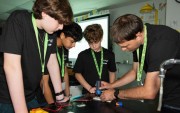


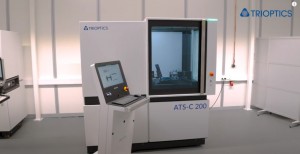
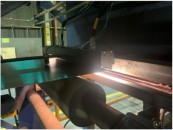

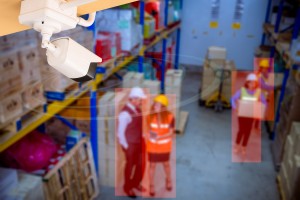




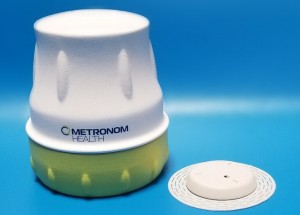
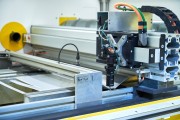


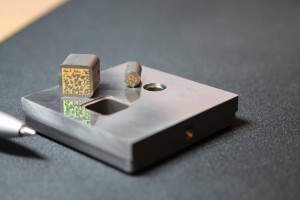
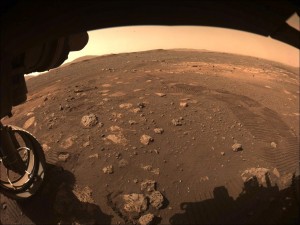
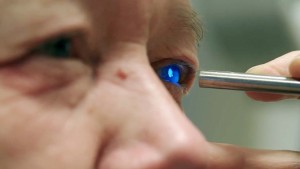

 Back to People
Back to People